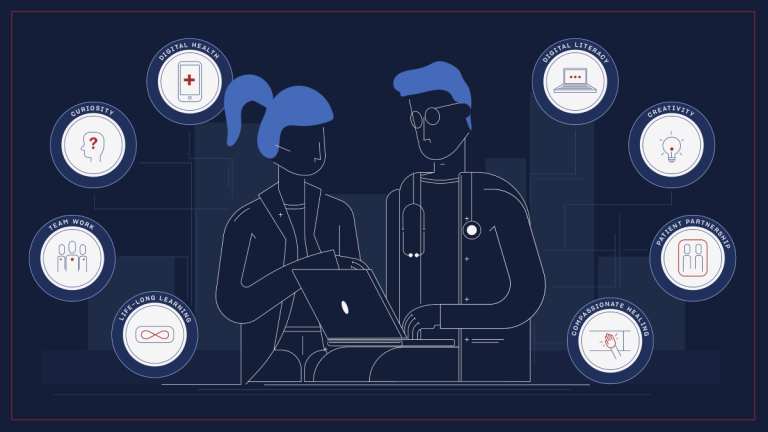Over 10 years experience of Traceability Solutions

By Pharmatrax Author
Category: Technoloy
 No Comments
No Comments
With 7% of Google searches – or 70,000 per minute – being health-related, it was only a matter of time before the search giant aimed to be a healthcare giant. Google hasn’t been particularly shy at expressing these ambitions either. It purchased Fitbit for $2.1 billion and had a dedicated healthcare offshoot from its A.I. branch, Deepmind.
In this new article series exploring the latest moves by tech giants into healthcare, we will look at recent developments coming from Google. Previous entries looked at the moves of Google’s competitors Amazon and Apple, and provided insights into the trends that those companies are adopting. For now, let’s turn our focus on Google’s plan for the future of healthcare. Of note, we will treat Google, Alphabet and Verily under the same umbrella. Alphabet is itself the parent company of Google, and Verily is a subsidiary of Alphabet that focuses on human health.
Google is probably best known for the algorithmic prowess of its search engine. But since it acquired DeepMind, it has intended to expand this expertise elsewhere, including healthcare. And its efforts are showing promise.
In August 2020, they introduced C2D2, a machine learning-based approach to improving colonoscopy screening. Accessible in real-time during a colonoscopy, the A. I. can help physicians identify which areas of the colon they’ve checked and those outside of the field of view. It can also indicate areas that haven’t been sufficiently covered so that the endoscopist can revisit that area.
Such an approach can help identify and subsequently remove small precancerous lesions in the colon before they become cancerous. This could lend tremendous help to curb colorectal cancer, which is one of the deadliest forms of the disease.
In the ensuing months, Google further put its A.I. as well as cloud computing expertise to use in new partnerships. In May, HCA Healthcare and Alphabet’s Google Cloud announced a collaboration to develop algorithms to mine insights in patient records from the provider to improve efficiency and patient outcomes.

As it carried out research with its A. I. algorithms in healthcare, Google seems to have grown interested in broader, population-level medical research. Last December, the tech giant launched Google Health Studies, a new app dedicated to medical research. It allows any user to participate by reporting their symptoms, the steps they are taking to prevent getting ill and if they’ve had relevant tests. Their first study is focusing on respiratory diseases like the flu and COVID-19.
This approach can help provide researchers with more relevant patient data and from a larger pool. But it also raises privacy concerns over the handling of such data.

Nevertheless, Google seems determined to move forward with medical research. They appointed Dr. Amy Abernethy, the FDA’s former principal deputy commissioner, as president of its Verily branch’s clinical research business. As the president of the life science division, Dr. Abernethy will lead the development of a platform for clinical trials and real-world evidence studies; as well as oversee Verily’s ongoing clinical research projects.
Just like Apple has a strong focus on turning patients into the point of care, Google is working on similar projects. In March, Verily announced its partnership with Highmark Health for the Living Health Initiative. The latter aims to redesign healthcare delivery with a focus on patients. This collaboration will employ Verily’s digitally-enabled tools for personalised chronic care management of conditions like congestive heart failure and chronic obstructive pulmonary disease.
In a rather unexpected move, Google decided to revisit a healthcare area it previously failed to pierce into: health records. In April, Stat News reported that the tech giant is working on a consumer-facing medical records tool to make it easier for patients to see, organise and share their health data.

The move is rather unexpected because in 2008, Google launched Google Health, which had a similar aim; but the company shut it down in 2012 as it hadn’t taken off. Google simply didn’t have the knowledge to make it happen then. But maybe now it can be more successful or try to be so; especially considering that its competitor, Apple, recently announced the integration of electronic medical records in its Health app.
Google is also leveraging its A.I. expertise in the consumer-facing space as well. The tech giant introduced its A.I.-powered dermatology app in May. In addition to providing patients with insights into their skin lesions, the app is also meant to help dermatologists and non-specialists better interpret skin conditions.
Like its competitors, Google has also faced some setbacks recently. The FDA rejected Verily’s request to use its wearable in a clinical trial to monitor alterations in motor symptoms of patients with Parkinson’s. In past years, the regulatory body did clear Verily’s device to monitor ECG and irregular pulse but rejected the request for this new feature. FDA said that the device and associated motor examination “are limited in their capacity to evaluate meaningful aspects of concepts of interest that are relevant to the patients’ ability to function in day-to-day life.”
Verily might need to refocus its efforts regarding its wearable just like its parent company refocused the Google Health division’s goals. Business Insider released an exclusive report in mid-June detailing how the company has moved Google Health employees to other groups within the company. According to the report, the Google Health branch will no longer focus on consumer tech, as this will be mainly driven by the Fitbit team. This could mean a larger team for Fitbit to focus on competing against Apple’s wearable dominance.
With Google revisiting old projects, refocusing its health team’s efforts and announcing new partnerships, it seems like the tech giant’s healthcare plans are all over the place. But this might be because Google wants to be everywhere in healthcare.
However, the latest developments indicate that the most promising avenues for the company are with A. I., remote monitoring software and cloud computing. But Google is also notorious for pulling the plug on even the most ambitious projects of its projects. The Google Graveyard is a testament to that.
So, it’s safe to say that we shouldn’t get too attached to a project set forth by Google, even if it could revolutionise healthcare. But we can expect the tech giant to keep branching out in various areas of healthcare as it aims to have a strong foothold on the market.
Source: https://medicalfuturist.com/googles-masterplan-for-healthcare/